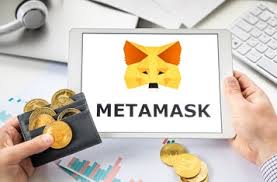ConsenSys, the parent company of MetaMask, took to Twitter to address and clarify a series of inaccurate claims circulating about changes in their terms of service, specifically around tax collection on crypto transactions. The company emphasized that MetaMask, a popular crypto wallet, does not collect taxes on cryptocurrency transactions, and no modifications have been made to their terms to enable this. The firm firmly rebuffed the circulating rumors, stating, “This claim is false.”
The rumors surfaced amid a period of rapid growth and adoption of digital assets, making the necessity for clear and accurate information paramount. ConsenSys’ main aim, as communicated, is to facilitate easy use, access, and development on web3, through their range of products, of which MetaMask is a part.
ConsenSys also sought to clarify the “fees and payment” section of their terms of service. The company pointed out that the tax-related clauses therein pertain exclusively to products and paid plans offered by ConsenSys which are subject to sales tax. Products falling under this category include the likes of Infura, which provides developer subscriptions that require payment via credit card and hence involve sales tax.
Legal jargon can indeed be tricky to navigate for most users. In light of this, ConsenSys emphasized that the tax section of their terms of service does not apply to MetaMask or any other products that do not necessitate the collection of sales tax.
Transparency and accuracy in sharing information with users are values that Consensys reiterated in their communication. The company has made a steadfast commitment to counter misinformation regarding its products and services. “We value our community’s trust and appreciate your continued support. Rest assured, we will always strive to provide you with reliable and truthful information,” ConsenSys tweeted. ConsenSys’ tweet also expresses the company’s dedication to creating a more accessible web3 future.

